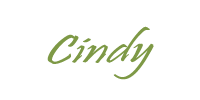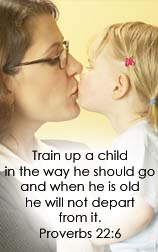Next fall, a new law in Florida will require its school districts to set up optional online schools for students in kindergarten through eighth grade. The law will give parents more options for schooling their kids. Supporters of online schooling say it allows kids to learn at their own rates and get specialized instruction. But others say that it's important for kids to interact with other kids at school.
Again it goes back to that age-old question of the dreaded word "socialization". Webster's defines "socialization" as such:
1: to make social ; especially : to fit or train for a social environment
2 a: to constitute on a socialistic basis <socialize industry> b: to adapt to social needs or uses
3: to organize group participation in <socialize a recitation>
intransitive verb: to participate actively in a social group
Our job as parents is to help our children grow and learn how to be responsible adults one day. I don't think that having children be in an homogeneous group day in and day out will teach them how to be members of society at large. Once they are grown and on their own, they will not be living in an homogeneous society - they will need to know how to interact with people of all ages and stages. That's one of the benefits of teaching children at home.
Additionally, children come with all kinds of different abilities - some advanced and some needing a little more help. Take my middle son Sean as an example. He taught himself how to read when he was just a little over 3 years old. According to state laws, he can not enter kindergarten until he is a month from being 6 years old due to when his birthday falls. What would that mean for him? Chances are, Sean would be insanely bored by the time he got to kindergarten - where the minimal expectations that a kindergarten teacher has for incoming students is:
Based upon Sean's skills at the age of 4, I have no doubt that he would end up not only bored, but would probably become a "problem" student because of it. Doesn't it make sense that children learn at their own pace - in an environment that enhances their skills and nurtures the areas that they need a little help with? I think it's a wonderful advancement that Florida is offering this opportunity to parents, and look forward to what the future of home education here will bring.











3 comments:
just to make a small point..there is a gifted program in the public education system which Sean would definitely test into. So he would prob not be as bored as you think. Our swim instructors son is in gifted and last year went up a grdae or two for his math class. Just speaking for the other side.
I'm certainly not saying that everyone needs to home school. But I know that there are no gifted programs in kindergarten, you are not able to skip kindergarten and test into first grade, and Sean can't enter kindergarten next year (effectively skipping a grade), so for at least the first year he would be so bored. I'm in favor of having gifted programs in the public schools (as well as special ed), but am just happy that the state of FL is pro-home schooling. Makes it easier for those of us on this side. :-)
Just to expand on what you are saying, the state of Florida subsidizes a rather successful VPK program that Kelly went through. A link to the 2008 guidelines are quite aggressive in preparation for kindergarten. http://www.fldoe.org/earlylearning/pdf/vpkedstandard.pdf
In her K class the students have been writing their own book reports once a week for the past few months and are now working on one and two digit math skills. In day care Jack is being prepped for VPK. He has learned to write his own name and learn other basic reading and writing skills before he will move to VPK next year.
Post a Comment